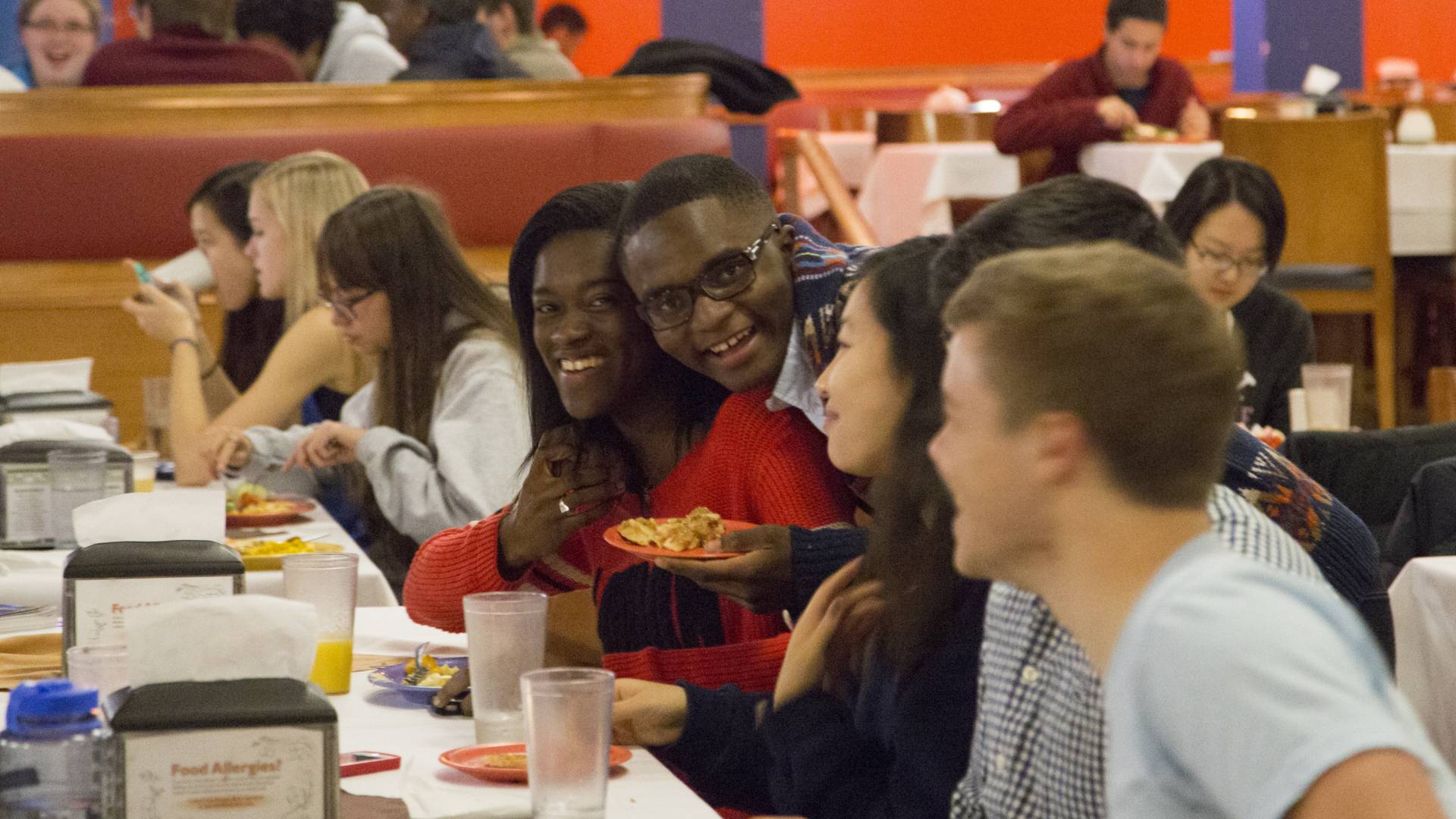
Overview
One of Princeton's defining characteristics is its small, residential community for undergraduate and graduate students. Nearly all of the University's undergraduates and 70 percent of the graduate students live on our beautiful campus, which creates a close-knit environment for living, studying and relaxing.
Undergraduate Housing
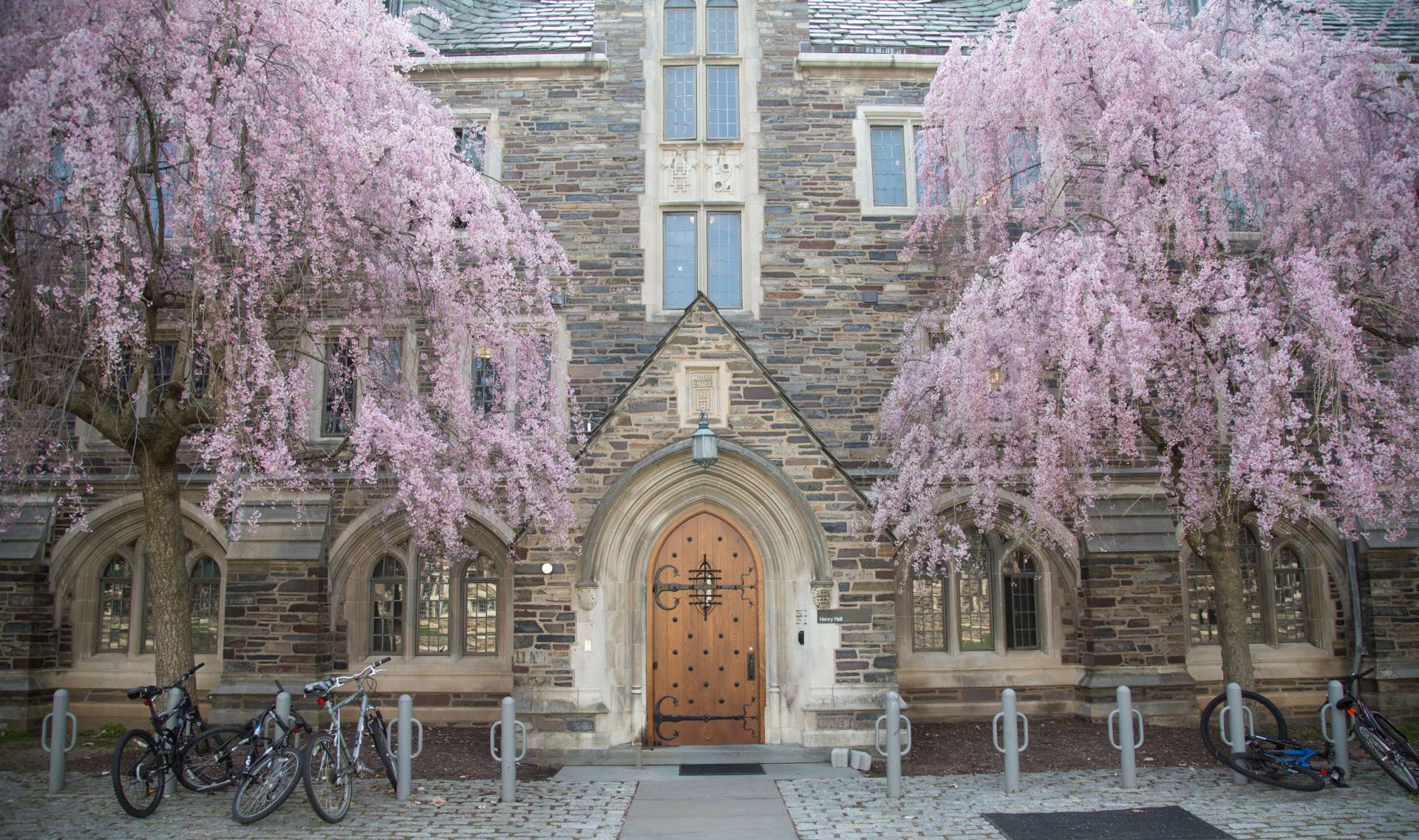
The heart of undergraduate residential life at Princeton lies in our seven residential colleges, groups of dormitories that form mini-communities within the University. The opportunities and resources provided at the colleges — from cultural events and intramural sports to study breaks — help students pursue their interests and get involved, with staff nearby for advising and support.
Most upperclass students live in individual dormitories that are not part of a residential college, and they choose from a variety of dining options, including eating in the dining halls, taking their meals at one of the 11 historic coed eating clubs along Prospect Avenue or joining food co-ops, where students prepare meals in groups or individually.
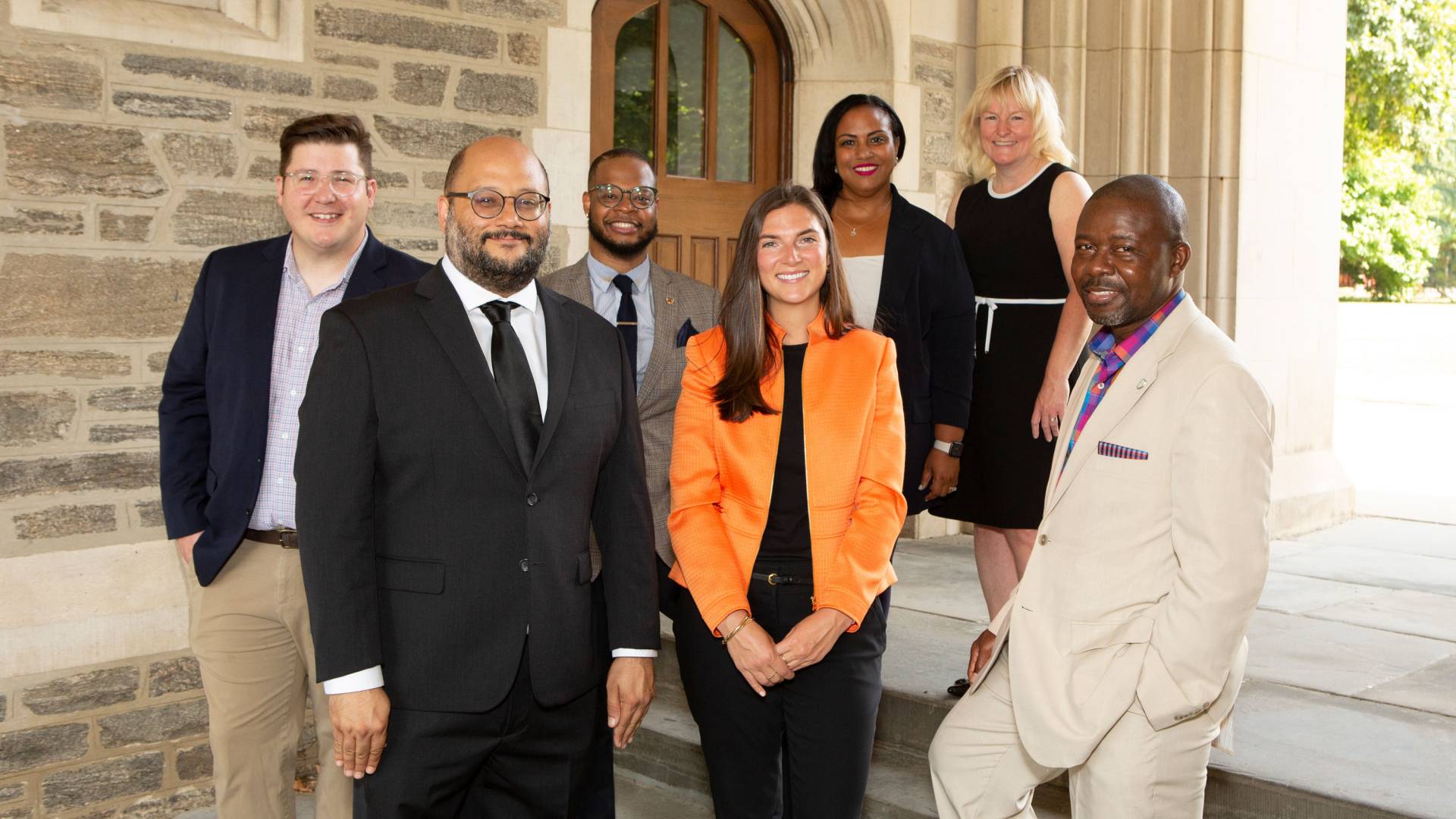
Princeton's Directors of Student Life (left to right): Joe Rolón, Amy Ham Johnson, Garrett Meggs, Claire Pinciaro, Darleny Cepin, Justin Smith and Momo Wolapaye.
Residential Colleges
As an admitted student, one of the most exciting moments is learning which residential college you will call home — Butler, Forbes, Mathey, New College West, Rockefeller, Whitman, or Yeh. Each college is architecturally distinctive, and all contain dining halls, common rooms, academic spaces, arts and entertainment resources and laundry rooms. All provide a welcoming, inclusive community to support your transition to Princeton.
Residential colleges are the center of residential life on campus. The colleges are where you'll make life-long friends, share meals with professors, develop new skills and enjoy a vibrant extra-curricular life filled with social events, study breaks and intramural sports competition.
When you arrive at your residential college, you'll be greeted by a team ready to support your academic and personal growth. Each college has a faculty head, dean, assistant dean of studies and an assistant dean of student life. First-years also benefit from the mentorship of older students, including residential college advisers (upperclass students living in the college), resident graduate students, and affiliated peer academic advisers.
All first- and second-year students live in one of the residential colleges. In junior and senior year, you will have the option of continuing to live in the residential college or moving into the upperclass dormitories. Whatever choice you make, you will remain affiliated with your college, and the relationships you develop there will follow you throughout your undergraduate experience. In fact, you'll return to your home college to receive your diploma.
Undergraduate Dining Options
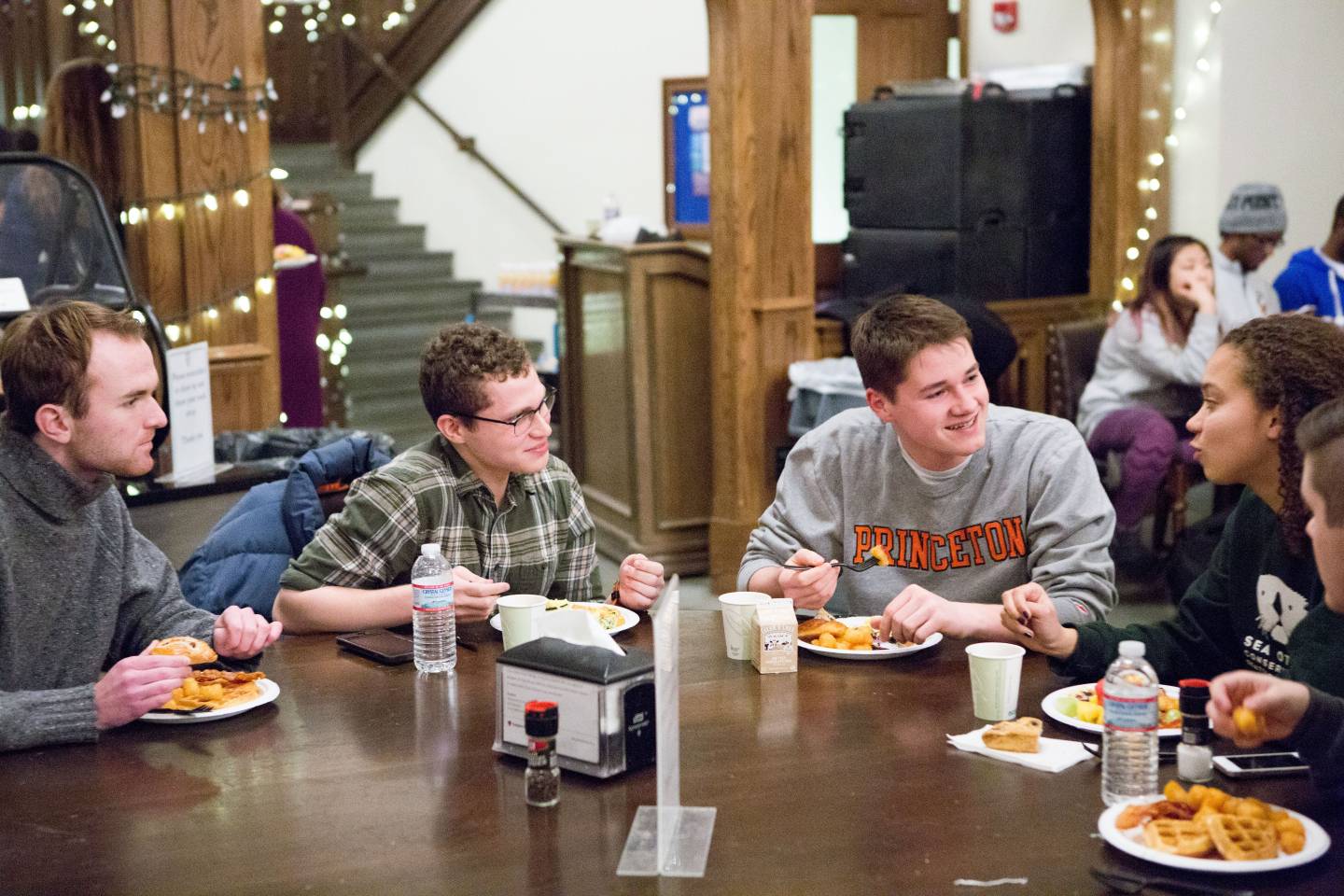
First-years and sophomores eat most of their meals at their residential college dining hall. Juniors and seniors may dine at residential colleges, or join eating clubs or student food cooperatives. In addition, students can eat at campus cafés, the Center for Jewish Life, or local restaurants, or prepare their own food in dormitory kitchens.
Residential Dining Halls
Residential college dining halls aren't just where students to go to grab food. They are where they connect with friends, unwind, experience other cultures through food and language, and extend their Princeton family.
Dining halls are located in each of Princeton's undergraduate residential colleges. Each dining hall features its own chef who creates healthy, sustainable menus for every taste and preference using scientific culinary principles.
Eating Clubs
Eating clubs serve as dining facilities and social centers for their members. The 11 clubs, which are co-ed, are open to juniors and seniors, and about two-thirds of students join a club. Located in houses along Prospect Avenue, the clubs are operated independently by student officers and alumni boards.
The clubs serve daily meals, and most members live on campus while eating at their club. Some eating club members who live in a residential college split their meal plans between their college and club. Financial aid awards for juniors and seniors include increased allowances for meals to help cover the cost of eating club membership.
The clubs' amenities include game rooms, libraries, study spaces and media rooms. Member activities at the eating clubs include dinner discussions, dances, intramural sports, community service projects and movie nights, and the clubs also host events, such as parties and concerts, for the larger campus community. Membership in a club is lifelong, and alumni often visit their clubs for a meal with fellow alums or current undergraduates when they come back to campus.
Five of the clubs have first-come, first-serve membership policies, and six of the clubs have a selection process in which students apply for membership. Any student who isn't admitted to a selective club may sign in to a club with open membership.
Student Food Cooperatives
Juniors and seniors may join one of three co-ops, including a vegetarian and international option, that operate on campus and provide their members kitchen access and a common food supply. These student groups cook and eat dinners together, sharing chores like cleaning, shopping, baking and even gardening. Since each co-op has several dozen members, each student is only required to cook one night a week. All students are welcome, regardless of cooking experience.
Independent Dining
Some juniors and seniors organize their own dining arrangements and cook on their own or eat in campus dining places and local restaurants. Many students who are "independents" live in Spelman Hall, which has four-person suites with kitchen facilities.
Graduate Housing
Approximately 70% of regularly enrolled graduate students live in University housing. Dormitories include historic and modern rooms in the Graduate College and rooms in converted homes, known as annexes. Another dormitory living option for graduate students is to apply to be a resident graduate student in one of the undergraduate residential colleges.
For students choosing apartment communities at the Lakeside Apartments and Lawrence Apartments and other locations, there is a range of unit sizes in both high-rise and garden configurations. University residential life offers academic, athletic, social, cultural, personal-development and community-service opportunities to graduate students and their families.
Amenities in the various graduate housing communities include athletic courts, barbecue areas, a coffee house, computing and study spaces, exercise rooms, garden plots, an over-21 private club (the D-Bar), parking, playground areas and pool tables. In addition to a central Graduate Student Life Team that organizes intellectual, cultural, service and social events, committees at each residential community provide a forum to discuss housing issues and plan programs. Princeton's TigerTransit shuttles connect graduate student housing to the center of campus and to local shopping centers.
Graduate Student Dining
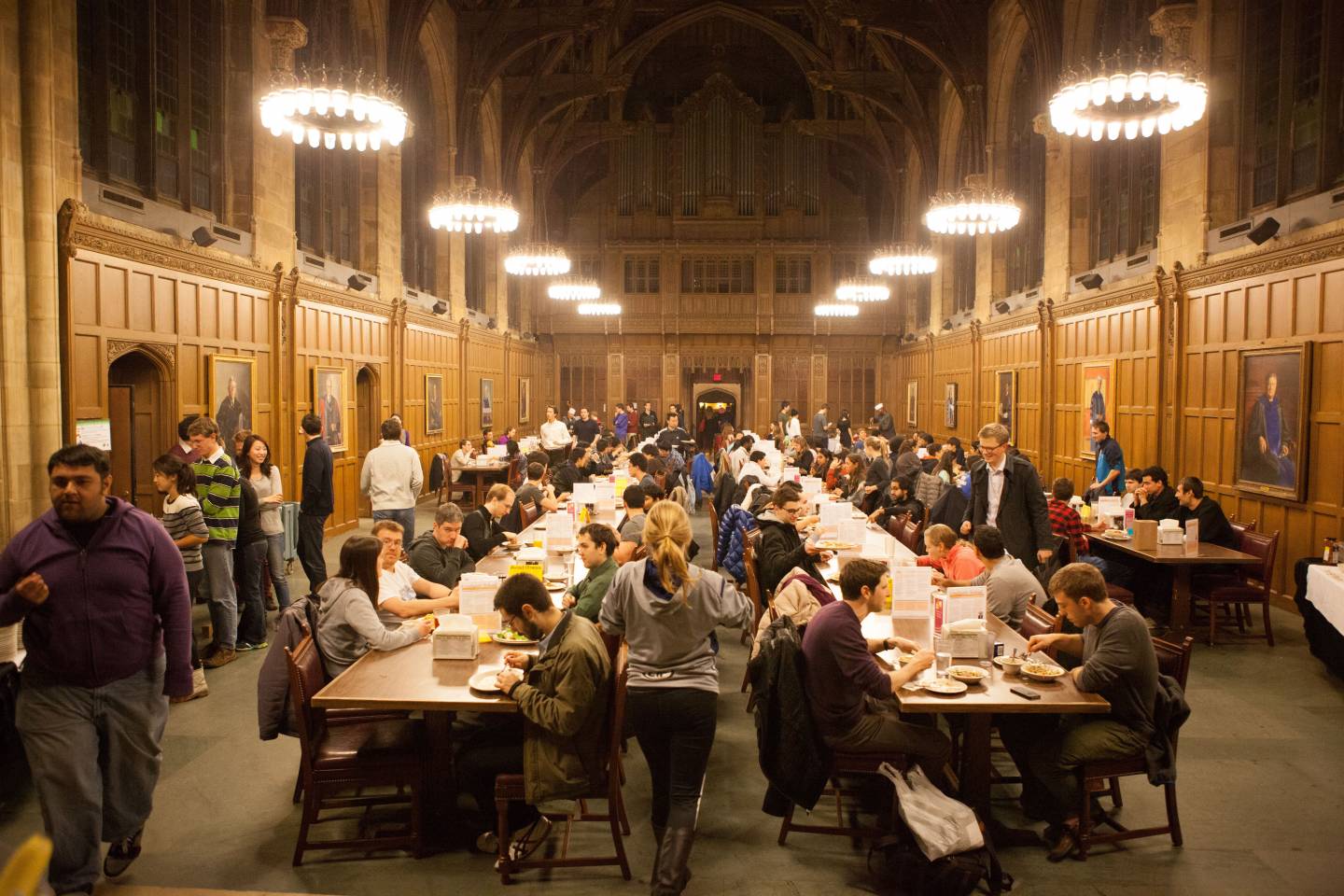
Graduate students gather for meals in Procter Hall at the Graduate College, in dining halls at the residential colleges, at Frist Campus Center, at campus cafés, and in the dining hall at the Center for Jewish Life. Graduate students may also buy meals at a variety of cafés around campus and around town.
Dining Around Campus
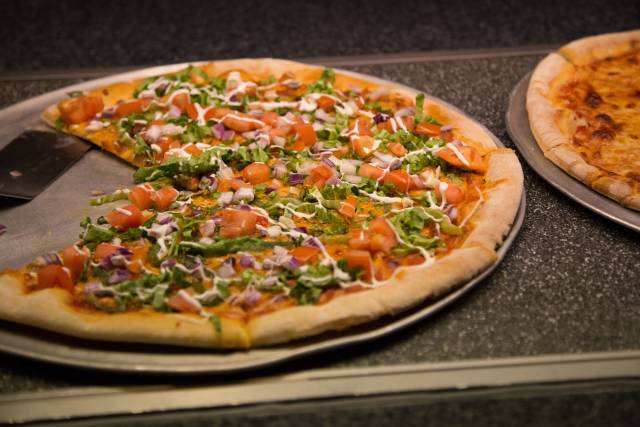
Every day across campus, hundreds of people work to provide students with healthy, delicious foods and beverages. Our award-winning Campus Dining team celebrates diversity of ingredients, authentic global cuisines and locally sourced and sustainable products.
Kosher & Halal Dining
The dining hall at the Center for Jewish Life (CJL) is kosher, supervised by the Orthodox Union, and open to all students and meal plans. Residential dining halls offer halal options, and students may arrange to have kosher meals from the CJL delivered to their dining hall.
Retail Dining
Serving everything from made-to-order salads to comfort food to locally roasted coffee, there are a range of cafés throughout campus where students, faculty, staff and visitors gather. The Food Gallery at Frist Campus Center, which resembles a food court, offers a range of hot and cold items, from tacos to freshly rolled sushi.
Eating in Town
Princeton offers an ever-growing number of restaurants, cafés, coffee shops, farmer's markets, brewpubs and other destinations where students, staff and faculty mix with local residents. Whether you're craving a steaming bowl of ramen or some of the nation's best ice cream, members of the University community nourish their spirits in the neighborhoods surrounding campus.